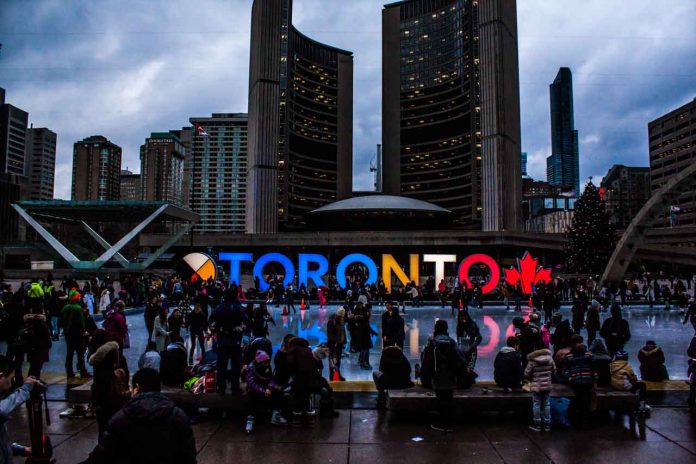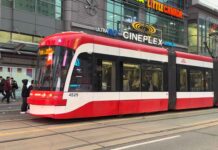Toronto, Ontario – In an emergency session held today, Toronto City Council has unanimously approved a comprehensive set of measures to address the city’s dire financial crisis. With an estimated $1.5 billion shortfall looming for the 2024 operating budget and an alarming $29.5 billion requirement for the 10-year Capital Plan, Toronto finds itself grappling with a staggering $46.5 billion shortfall over the next decade.
Council States Immediate Federal and Provincial Intervention is Vital
The gravity of this situation necessitates immediate and sustained assistance from both the Government of Canada and the Province of Ontario. The City Council has, therefore, called upon these higher levels of government to authorize new revenue tools tailored to Toronto’s unique challenges, including the potential implementation of a municipal sales tax or a share of existing sales taxes.
Failing the establishment of a new funding model or growth-related revenue tools, the City of Toronto has issued a stern warning to the federal and provincial governments: they will be compelled to cut essential services and halt critical capital projects that are pivotal not only to the city but also to the region, province, and country at large. These projects encompass vital areas such as housing, transit, refugee response, and climate action.
Toronto Takes Action
Recognizing that a single action cannot resolve the financial crisis, the City Council has approved a multifaceted approach aimed at enhancing existing policies and revenue mechanisms while introducing new ones. Key actions approved include:
- Graduated Municipal Land Transfer Tax Rates: Effective January 1, 2024, for residential properties valued at $3 million and above.
- Multi-year Property Tax Rate Strategy: To be developed.
- Parking Rate Review: The removal of the on-street parking rate cap to enable a comprehensive rate review.
- Vacant Home Tax Rate Increase: Exploring the possibility of raising the Vacant Home Tax rate from one to three percent.
- Enhancing Ridership: Collaborating with the TTC and the Toronto Arts Council to increase ridership.
Additionally, the City Council has requested staff reports on the introduction of various new revenue and policy tools, including a Foreign Buyer Land Transfer Tax, a Commercial Parking Levy, a dedicated 911 Next Generation levy, an Emissions Performance Charge for buildings, and an additional land transfer tax on buyers of multiple residential properties within Toronto.
Further exploratory reports are expected on reducing expenditures, optimizing asset management, and the feasibility of additional revenue tools, such as restructuring or dissolving the Imagination, Manufacturing, Innovation and Technology (IMIT) Financial Incentive Program, reviewing non-residential non-ground floor area development charge exemptions, maximizing real estate assets’ value and use, introducing a levy per passenger from Billy Bishop Toronto City Airport, and implementing graduated municipal property tax rates for high-value residential properties and non-primary residences, among other initiatives.
Prior Efforts Fall Short
Before today’s critical decisions, the City of Toronto had already taken significant steps towards financial sustainability. However, these actions, including a 1.5 percent annual increase to the City Building Fund Levy, the largest residential property tax increase in recent years, increased revenue and user fees, and effective pandemic management, have proven insufficient to address the looming budget shortfall and the broader long-term financial crisis.
Property Taxes Fall Short of Funding Provincial and Federal Responsibilities
Toronto provides essential services that extend beyond its municipal responsibilities, including child care, long-term care, employment and social services, public health, and refugee response. Approximately 22 percent of the City’s annual property tax revenues, amounting to $1.1 billion, ease the financial burden on other levels of government while benefiting the broader region.
In light of this, the City Council has informed the Province of Ontario that, without revised funding agreements, they will be unable to proceed with the planned 978 new long-term care home beds. Furthermore, the City may suspend negotiations on Provincial Priority Transit Projects and future provincial transit expansion projects due to the lack of funding for transit operation and maintenance on critical lines, including Eglinton Crosstown (Line 5) and Finch West (Line 6).
The City Council has also called upon the Province of Ontario to assume responsibility for the construction and maintenance of the Frederick G. Gardiner Expressway and the Don Valley Parkway, including any future capital and operating costs.
A Looming Crisis
The City of Toronto first identified the gap between revenues and expenditures in 2016, and it has continued to be a significant challenge in each subsequent budget cycle.
For more detailed information on Toronto’s Long Term Financial Plan, please visit www.toronto.ca/city-government/budget-finances/city-finance/long-term-financial-plan/.
The complete updated Long Term Financial Plan and accompanying staff report can be accessed on the City’s website at https://secure.toronto.ca/council/agenda-item.do?item=2023.EX7.1.







